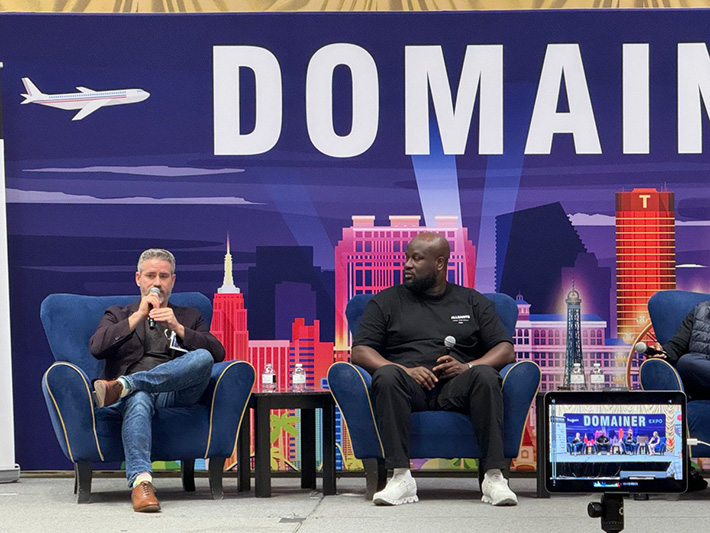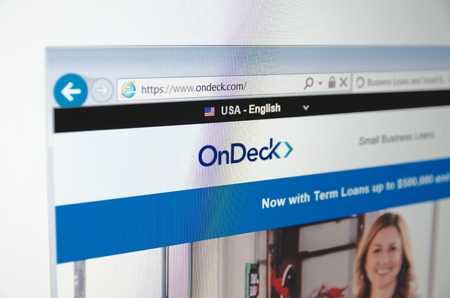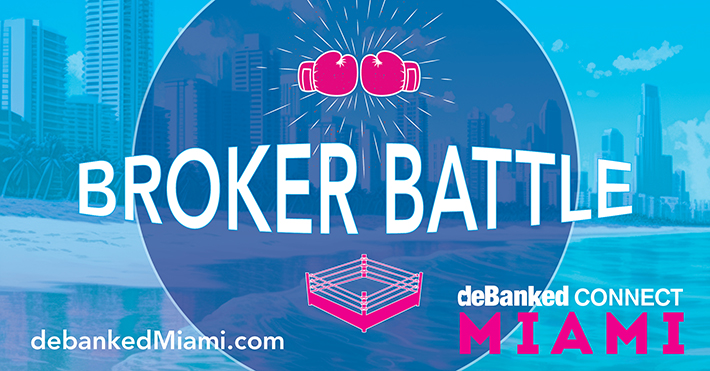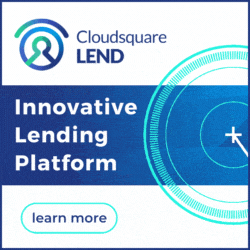Archive for 2023
Mastering Taxes for Merchant Cash Advance Businesses – Cash Basis 101
December 7, 2023David Roitblat is the founder and CEO of Better Accounting Solutions, an accounting firm based in New York City, and a leading authority in specialized accounting for merchant cash advance companies. To connect with David or schedule a call about working with Better Accounting Solutions, email david@betteraccountingsolutions.com.
 For funders in the merchant cash advance industry, navigating through various funding scenarios is a common challenge. There are many different ways to fund your MCA business–including institutional money, using your own funds, partnering with syndicators, or involving outside investors– and understanding how to recognize income for reporting to your partner, syndicators, investors and the IRS is essential to avoid tax and compliance issues down the line.
For funders in the merchant cash advance industry, navigating through various funding scenarios is a common challenge. There are many different ways to fund your MCA business–including institutional money, using your own funds, partnering with syndicators, or involving outside investors– and understanding how to recognize income for reporting to your partner, syndicators, investors and the IRS is essential to avoid tax and compliance issues down the line.
When I started Better Accounting Solutions in 2011 and began working with clients in our industry, I found the accounting world wholly unprepared for the different funding streams MCA businesses worked with, and in the years since, we’ve managed to systematize and customize the income recognition process for the entire industry, particularly in the context of accrual basis reporting, as we’ve become more and more ingrained in the space..
Let’s explain how, starting by exploring the different funding scenarios your business might find itself in:
Using Company’s Own Funds: Some funders rely solely on their own company’s money to provide advances. In this scenario, the funding is entirely self-financed, and the company does not seek external investments.
Equity Partner of the Funding Company as Syndicators: Other funders collaborate with partners who contribute money as syndicators, in addition to using the company’s funds. This means that both the company and its partners are involved in funding the deals.
Outside Syndicators and Investments: Certain companies involve outside syndicators, who are not part of the company’s core team or partners, to provide additional funding. This setup allows the company to expand its funding capacity beyond internal resources and institutional investors.
Income Recognition for Reporting and Tax Purposes
Typically, for funders using their own company’s money, there are two primary ways to recognize income— one for reporting purposes and the other for tax purposes.
Cash Basis Reporting: Cash basis reporting recognizes income and expenses when actual cash is received or paid. In this method, income is recognized when the money hits the bank account, and expenses are recognized when the money leaves the credit card or bank account.
Accrual Basis Reporting (GAAP): Accrual basis reporting, also known as Generally Accepted Accounting Principles (GAAP) reporting, is used by Certified Public Accountants (CPAs) when auditing financial statements. Unlike cash basis reporting, accrual basis recognizes income when earned, regardless of when the cash is received, and expenses are recognized when they are accrued. (More about GAAP in a future article)
Challenges in Income Recognition for Merchant Cash Advance
Recognizing income in the merchant cash advance industry can be complex, especially when dealing with cash advances rather than traditional loans. Unlike loans, where regular payments consist of interest and principal, merchant cash advances involve the purchase of future receivables.
Consider this example: A merchant cash advance provider funds a merchant with $100,000 at a commission expense of 12% and a Junk Fee income of 10%. The bank fee income and RTR/Factor Rate is.5, while the merchant will pay back $150,000, $1,500 daily assuming a 100 day duration.
Cash Advance Income Recognition Approach in Cash Basis Accounting:
Because of this unique funding structure, here’s how my team at Better Accounting Solutions recommends reporting the income (BAS will typically use Accrual Basis reporting for business owners, and note-holder investors, and cash basis for tax reporting if the company’s revenue is less than $10 million annually):
Commission Expense and Junk Fee Income: The commission expense and junk fee income are recognized immediately (in most scenarios) on the day the advance is given, deducted from the funded amount.
Factor Income: Until the full contract funded amount of $100,000 is received in the funder’s bank account (not just the amount wired), no additional income is recognized. Once the contract amount is fully received on a cash basis, any payments received after that point constitute factor income or RTR income.
What’s the benefit of reporting this way?
By reporting on a cash basis you are deferring the recognized tax income. For example, if you have a deal that was funded in November over five months, you will have been only about forty percent in the payback by the time the tax calendar year is over. Since you would have not received the contract funded amount back yet , you would not recognize any of the factor income for tax purposes until the following year, thereby deferring your tax liability. This means you have more time to spend that money and grow your actual business.
It’s important to acknowledge that accounting practices can vary, and accountants may have differing opinions on income recognition. The approach outlined here is definitely an aggressive method, but one I continue advocating using for IRS and tax purposes, for the reasons listed above.
As we’ve said, navigating income recognition in the merchant cash advance industry can be challenging due to the unique nature of cash advances. Understanding the funding scenarios, recognizing income for reporting and tax purposes, and considering different accounting methods are crucial for funders and companies in this space, and will give you a leg up come Tax Season.
It’s essential to emphasize that this article is for informational purposes only and should not be construed as accounting or financial advice. It’s strongly recommended for funders and companies to seek guidance from qualified accountants or financial professionals to ensure compliance with accounting standards and tax regulations tailored to their specific circumstances.
Nice Asset, Sure Would Love to Lend Against It
December 6, 2023 “Sean,” said the moderator, “where do you see domain names in five years?”
“Sean,” said the moderator, “where do you see domain names in five years?”
At the inaugural Domainer Expo in Las Vegas this week, I was sort of a self-proclaimed emissary from the lending world, there to tell everyone that domain names had a lot more potential utility than what most people probably realize.
“When businesses are looking for capital, there’s sort of a diagnostic checklist,” I said (in substance). “You ask the business how much revenue they have, you ask them if they have equipment, you ask them if they have real estate, etc. and lenders are trying to figure out which of those assets is something they can use as the basis for financing, but nobody asks about their domain name.”
Maybe they should. If a million links on the internet point to a business’s domain name and search engines rank it, then that domain name is integral to the sales generated on the site. And if a business got a loan against a domain name that they’re using to generate tens of thousands or hundreds of thousands in sales per month, they probably wouldn’t want to lose it because it’s worth a lot.
Usually in the business loan world the story ends here. Ok, domain names? sounds complicated, too techie, waste of time, dollar amounts are too small, nobody wants to deal with that, etc.
 But you’d actually be surprised. The technology is just about there that if a business doing $1 million/year in website-originated sales said that they’d be willing to put up their domain name as collateral for a $100,000 loan today, you could send them a link that automatically transfers their domain name to escrow in seconds without them experiencing any disruption to their site. Then if they default on the loan, the domain name transfers to you, where if you understand anything about e-commerce, you should immediately be able to monetize their domain and capture those sales for yourself.
But you’d actually be surprised. The technology is just about there that if a business doing $1 million/year in website-originated sales said that they’d be willing to put up their domain name as collateral for a $100,000 loan today, you could send them a link that automatically transfers their domain name to escrow in seconds without them experiencing any disruption to their site. Then if they default on the loan, the domain name transfers to you, where if you understand anything about e-commerce, you should immediately be able to monetize their domain and capture those sales for yourself.
That means no trying to foreclose on a property, no trying to chase down equipment, no suing them, getting a judgment and then hiring an expert to find if they have assets anywhere. Just click-click yours, a revenue generating asset that you can use as leverage to cure the default or monetize immediately and start making your money back with. If you don’t know anything about websites, then maybe this concept wouldn’t be enticing for you as a lender.
I could go into the technical mechanics of how this domain loan process would work, but for now just imagine talking to a business owner generating a lot of revenue that really doesn’t have many assets to make use of. They need $100k and they can’t get it any other way. You tell them they can use their domain name as collateral with no disruption to their website. It will happen instantly. There’s no tax returns needed, no credit check. It’s based on sales, something we might all already be familiar with. Will some business owners say “yes” to such a proposal or would they tell you they’d rather have nothing instead?
Small Businesses More Understanding, Looking for LOCs
December 4, 2023 “The ISO channel is an important part of our business and we remain committed to it,” said Jay Shaw, Head of Sales at Enova SMB. Enova, which operates OnDeck and Headway Capital, is one of the largest small business lenders in the United States. The company has originated more than $2.2B in loans in the first three quarters of this year, a lot of which comes through “highly compliant ISOs.” The relationship works, especially in times like these when banks are reducing their exposure to small business lending.
“The ISO channel is an important part of our business and we remain committed to it,” said Jay Shaw, Head of Sales at Enova SMB. Enova, which operates OnDeck and Headway Capital, is one of the largest small business lenders in the United States. The company has originated more than $2.2B in loans in the first three quarters of this year, a lot of which comes through “highly compliant ISOs.” The relationship works, especially in times like these when banks are reducing their exposure to small business lending.
But officially we’re not in a recession. The S&P 500 is up 20% YTD, for example, unemployment is low, and inflation has backed off from its previous peak. Shaw says that a positive sentiment among small businesses is something they’re seeing along with this, that when they actually talk to small business owners one-on-one, many of them are feeling pretty good right now.
While most observers would point out that elevated interest rates have shaken up the game, there’s actually been a silver lining to how it’s played out.
“There’s a lot more education and understanding of cost of capital,” said Shaw.
Business owners, for example, who were used to a perpetual low interest rate environment, have watched banks dramatically increase interest rates over the last year or so and it’s actually brought attention and awareness to the fact that lenders have a cost of a capital to contend with as well, that rates come from somewhere. It’s made them more understanding, according to Shaw, when they’re presented with terms now from online lenders. That understanding is compounded by a greater openness to doing it all online in the first place, which businesses are now more accustomed with after having to do so much online during the covid years. In essence it’s a strong environment to be working in right now. Still, many businesses are coming in with a certain expectation of how online lending should work especially if they worked with a bank previously.
 “More and more businesses are looking for a line of credit product,” Shaw said, which Enova offers in addition to term loans. Businesses tend to appreciate this product not only because of the control it gives them but also because “they have continuous access to capital after every payment they’ve made,” Shaw said.
“More and more businesses are looking for a line of credit product,” Shaw said, which Enova offers in addition to term loans. Businesses tend to appreciate this product not only because of the control it gives them but also because “they have continuous access to capital after every payment they’ve made,” Shaw said.
According to the Intuit Small Business Index Annual Report, 22% of small businesses applied for a loan or line of credit last year. Although this didn’t distinguish term loans from lines of credit, the demand for a revolving product is evident by an even more sought after type of financing, credit cards, which 30% of small business owners applied for. MCAs, by comparison, were a distant fifth, with only 6% of businesses applying for one.
Perhaps an all important measure is not only what businesses want but how they’re using it in the end.
“A lot of [our customer’s] borrowing is growth borrowing with a significant ROI,” Shaw said.
Wait, Is Section 1071 On The Verge Of Being Cancelled?
December 1, 2023 After the CFPB spent 13 years trying to figure out how to implement a wide-reaching poorly-worded law, the ensuing 888-page handbook full of rules for small business lenders to follow so the government can measure disparities in commercial loan underwriting processes, may have all been for naught. Congress wants the rules gone.
After the CFPB spent 13 years trying to figure out how to implement a wide-reaching poorly-worded law, the ensuing 888-page handbook full of rules for small business lenders to follow so the government can measure disparities in commercial loan underwriting processes, may have all been for naught. Congress wants the rules gone.
The rules in question were mandated by Section 1071 of the Wall Street Reform and Consumer Protection Act of 2010 (Dodd-Frank) at a time when the bill’s drafters assumed that all business financing products were loans and all loans came from banks. The consequence has been endless rounds of debates, RFIs, hearings, committees, consultations, explainer guides, and lawsuits. Most recently there was a court-ordered injunction put in place to delay implementation of these rules.
Today, however, the House followed the Senate in voting to strike down the relevant rules. Though it was close in both chambers of Congress, Democrats did join Republicans in reaching this outcome. Nevertheless, reports say that Biden is expected to veto their resolution.
Notably, the passed legislation disapproves the rules submitted by the CFPB, not the underlying section of the law that mandates they draft a set of rules. This is important because it’s not Section 1071 that they’ve voted to undo, but rather the final rules that the CFPB has issued as part of its obligation to Section 1071.
According to House republicans, “By overturning the final 1071 rule, Congress will force the CFPB to reengage small businesses and their lenders to create a rule that is better tailored to their concerns and less likely to reduce the availability of credit.”
This effectively means that Section 1071 itself is safe (unless a court rules it or the CFPB unconstitutional). If the President does not veto it the legislation would force the CFPB to go back to the drawing board on rules it took 13 years to come up with in the first place.
Bluevine Partner Email Circulates
December 1, 2023An e-mail purporting to come from Bluevine’s Partner Notifications account was sent out to about 300 of their resellers yesterday with a plainly stated notice that their Referral Marketing Agreements had been terminated.
A representative from Bluevine confirmed that these notices were legitimate, saying that “we refined our strategy and are moving away from the ISO/reseller model.”
This was followed by the statement that “We will continue to work with a set of select strategic partners to deliver loans to small businesses.”
Bluevine has been making moves as of late. The company relocated its headquarters to Jersey City, NJ earlier this year, launched an Accounts Payable solution in August, and began offering protection of up to $3 million for business banking customers in September.
Expecting a Huge Turnout for deBanked CONNECT MIAMI
November 29, 2023Have you heard? Prominent industry insiders are expecting a huge turnout for deBanked CONNECT MIAMI taking place on January 11th in Miami Beach. The signature event, which this year features the FIRST EVER Broker Battle™, is drawing interest from the funder and broker community like never before. Other notable things to catch include the all-in-one broker info session called Broker Brilliance, a guest keynote from industry veteran David Goldin, technology showcases, and tons of networking! January 11th is right around the corner. See you there!
FCC Seeks to Close the “Lead Generator Loophole” on Texts and Calls
November 27, 2023 As part of the FCC’s initiative to “combat illegal text messages” the regulator intends to require that texters and callers obtain a consumer’s prior express written consent from a single seller at a time. Specifically, the FCC is acknowledging that lead generation sites or comparison shopping sites attempt to abide by the current rules by obtaining one layer of consent that they then creatively apply as counting toward all the numerous parties they have relationships with. It’s known as the “Lead Generator Loophole.”
As part of the FCC’s initiative to “combat illegal text messages” the regulator intends to require that texters and callers obtain a consumer’s prior express written consent from a single seller at a time. Specifically, the FCC is acknowledging that lead generation sites or comparison shopping sites attempt to abide by the current rules by obtaining one layer of consent that they then creatively apply as counting toward all the numerous parties they have relationships with. It’s known as the “Lead Generator Loophole.”
“Lead-generated communications are a large percentage of unwanted calls and texts and often rely on flimsy claims of consent to bombard consumers with unwanted robocalls and robotexts,” the FCC said in its proposal. Their solution? One-to-one consent.
First, the one-to-one consent must come after a clear and conspicuous disclosure to the consenting consumer that they will get robotexts and/or robocalls from the seller. “Clear and conspicuous” means notice that would be apparent to a reasonable consumer. In addition, if compliance with the federal Electronic Signatures in Global and National Commerce Act (the E-Sign Act) is required for the consumer’s signature, then all the elements of ESign must be present.”
Second, we adopt our proposal that robotexts and robocalls that result from consumer consent obtained on comparison shopping websites must be logically and topically related to that website. Thus, for example, a consumer giving consent on a car loan comparison shopping website does not consent to get robotexts or robocalls about loan consolidation.
Fortunately, the FCC spells out an example of what might be acceptable as one-to-one consent for a lead generator.
For instance, the website may offer a consumer a check box list that allows the consumer to specifically choose each individual seller that they wish to hear from. Alternatively, the comparison shopping website may offer the consumer a clickthrough link to a specific business so that the business itself may gather express written consent from the consumer directly. Our rule does not prohibit comparison shopping websites from obtaining leads through valid consent and provides multiple opportunities for responsible comparison shopping websites to obtain leads for potential callers.”
According to the National Law Review, “It has not been adopted yet but it looks like it will be in December when voted upon. It looks like the rule will become effective in or around August of 2024.”
A Fun QSR Chain or “Big Sandwich”?
November 27, 2023 As the small business financing space contemplates competition from merchant-integrated platforms like Square, Shopify, and Intuit, one behemoth is taking over the franchises themselves. The company is Roark Capital, an Atlanta-based PE firm with $37B in assets under management, and they taste delicious.
As the small business financing space contemplates competition from merchant-integrated platforms like Square, Shopify, and Intuit, one behemoth is taking over the franchises themselves. The company is Roark Capital, an Atlanta-based PE firm with $37B in assets under management, and they taste delicious.
Roark Capital already owns Arby’s, Auntie Anne’s, Baskin-Robbins, Buffalo Wild Wings, Carvel, Cinnabon, Carl’s Jr., Hardees, Culver’s, Dunkin Donuts, Jamba, McAlister’s, Moe’s Southwest Grill, Schlotzky’s, Seattle’s Best Coffee, Jimmy John’s, SONIC, Jim’n Nick’s Bar-B-Q, Miller’s Ale House, North Italia, Nothing Bundt Cakes, and the Cheesecake Factory. Three of those are among the top fast-food sandwich chains in America (Arby’s, Jimmy John’s, and McAlister’s Deli). Roark is also presently in the process of acquiring Subway, the leading company in that category by nationwide sales. The deal was announced in August.
But now the FTC is saying not so fast on the basis that it might create a monopoly. According to Politico, “the government is focused in part on whether the addition of Subway gives Roark too much control of a lucrative segment of the fast food industry.”
“We don’t need another private equity deal that could lead to higher food prices for consumers,” railed Senator Elizabeth Warren on social media. “The FTC is right to investigate whether the purchase of Subway by the same firm that owns Jimmy Johns and McAlister’s Deli creates a sandwich shop monopoly.”
While many comments on social media made fun of this regulatory effort, perhaps such consolidation is a wakeup call for the small business finance industry. Once upon a time the textbook definition of a non-bank funding merchant was a restaurant or QSR sandwich shop. Although the target customer has broadened considerably since then, it may be worth keeping in mind that a large diversified portfolio of QSR funding customers might not be so diversified at all. Behind the scenes, it may actually all be a single counterparty. A small business might not be so small. You could be dealing with Big Sandwich.































